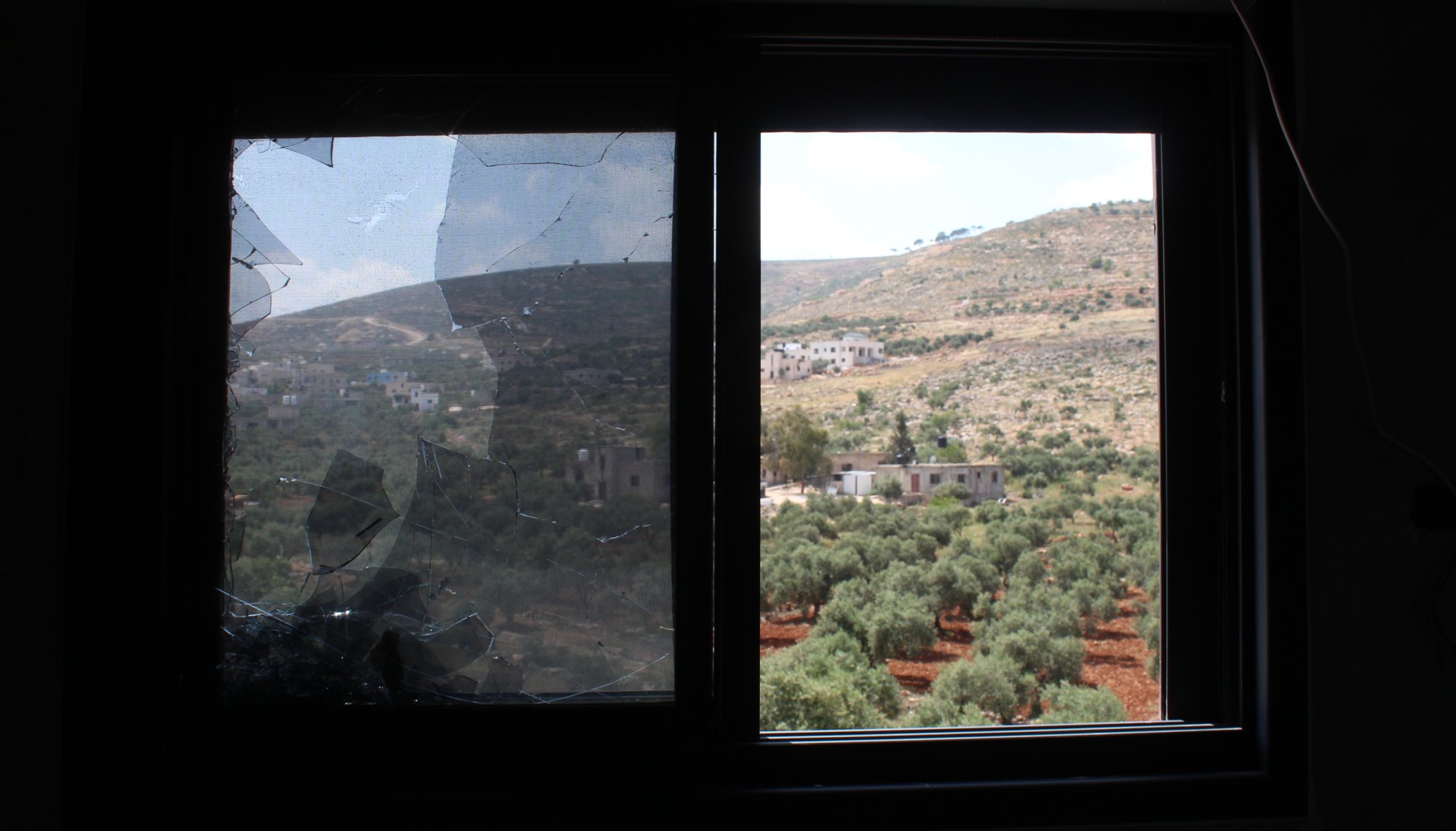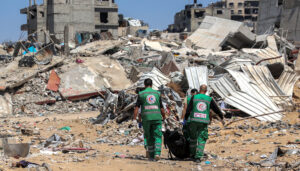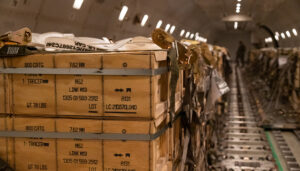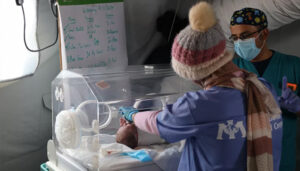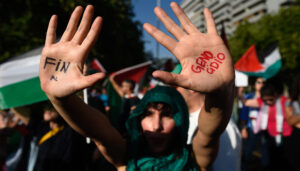Written By: Philip Mainwaring
There will be no warning when your turn comes. An instant decision will be needed. You will have to enter straightaway, or make a point of declining on the spot. Then, if you decide to go, like I did, you’ll find yourself being led meekly through the swing-doors. They’ll chatter, incongruously, about some triviality of the day, as your mind fills with naïve visions of the dead.
Afterwards, I was grateful for the glass of milky arrack and water that Yahya the foreman set before me and the humor that he saw in the whole situation. It brought back some semblance of normality. Seated opposite me, he had broken into a ponderous chortling, breathing hard to feed a rhythmic grunting. He was originally from Haifa, before 1948, but with his fair complexion and round face, he might have passed for a native of Berlin or Amsterdam. He wore a second-hand tweed jacket with leather patches that lent him the air of a retired academic. I sniffed hard at my drink, trying to flush out the lingering stench in my nostrils.
There is nothing mysterious or reverential about a mortuary. Brightly colored pieces of people lie around and bits of organs float in plastic containers. It’s not much different from a butcher’s shop. In fact, my first impression was of some weird robotics workshop. A technician in a grubby lab coat tinkered over the marble-white android on the bench below him. Its arms were flung back on either side like a plummeting diver, the ribcage spread like a gutted fish, the facial skin rolled up like a rubber mask, and the skull-cap popped open like the lid of a tin-can.
Yahya turned in his chair and called through the kitchen door. ‘Abu Tayyib! Come out here and listen to a Tafila joke, but a real one!’
The cook pushed back his chair from the table where he was sorting small stones from lentils in a large sieve. He shuffled out to join us with his broad hands held by his sides. Despite his firmly-set mouth, he had a keen appreciation of the absurd.
‘What?’
‘It’s about the policeman; the new one from Tafila.’
Yahya loved his Tafila jokes. The small, southern town is a by-word for stupidity in Jordan. Yahya was unable to resist grinning when I asked him to tell one. Abu Tayyib would throw his head back and laugh, open-mouthed, at the very thought of it. Yahya and Abu Tayyib would get through five to ten at a sitting, taking turns until everybody was hysterical, wiping away the tears. Yahya’s favourite concerned a Palestinian, a Syrian and an old man from Tafila who walk into a restaurant with their wives. The Palestinian gestures to his wife and calls out, Waiter! Being me some sugar for this sugar! The Syrian cries out, Garçon! Bring me some honey for this honey! The man from Tafila shouts out, Boy, bring me some milk for this cow!
Of course, this is a long way from funny, at least in English. On the other hand, the jokes rely heavily on punning and wordplay, which count for a lot to an Arab listener.
I pictured Sergeant Hosni trudging down the high, red ridge towards our worksite, his huge frame reduced to a dark blue point in the landscape. He was pear-shaped with ample buttocks, but powerful too, with a fleshy neck. His belt cut into the blue sweater around his waist and his beret balanced obliquely on his head. After we had exchanged greetings he peered over the plain towards the Dead Sea and frowned.
‘How high are we here?’ he asked.
‘About two hundred metres below sea-level.’
‘Then why doesn’t the seawater rush into the Ghor?’
The question took me by surprise. I had to think about it for a moment.
‘Because there are high areas between here and the sea.’
‘Good. If the waters break through then the oceans will all run dry.’
Yahya snorted and dug Abu Tayyib in the ribs. ‘Oceans run dry! He really is from Tafila!’
‘What did this donkey want with you, anyway?” interrupted Abu Tayyib.
Sergeant Hosni had nodded at my explanation. ‘I need you to come to the hospital.’
‘What’s happened?’
‘A man has been found dead on the north side of the plain; in a gully behind the pipeline. A foreigner, stabbed to death.’ He leaned in, close. ‘We thought it might be you. Short beard like you, same hair colour, about the same height.’
It was not an unreasonable assumption. There could not have been more than two of three foreigners working in this remote corner of Jordan, let alone two with the same sets of features. And this region was not a place frequented by tourists.
Hosni continued, “He’s in the hospital.’
I nodded vaguely. ‘At least it can’t be one of our team,’ I offered. ‘Have you checked with the company? It might be one of the foreign engineers.’
He clicked his tongue upwards. ‘There are no foreigners with the company at the moment.’
‘Sorry, I can’t help you. I’ve never seen this man.’
‘Not to worry. I just need you to come and make a statement to round out the paperwork.’
I nodded again, without understanding.
Yahya was struggling to control himself. ‘Listen to what happens next!’
Sergeant Hosni patted my shoulder.
‘We need to find out who this man is. I need you to look at the body.’ He continued quickly, before I could speak. ‘Just for the paperwork; otherwise the captain will be on my back.’
Sergeant Hosni and I toiled back over the ridges and gullies and up to the car. Then he drove the short distance to the compound perimeter. He waved at the wizened old guard who came out of his booth to raise the boom gate. The high wire fence surrounded miles of sand and scrub. It took us a good few minutes to reach the little town centre. It was a remarkable sight in the middle of this ancient, jagged landscape. Few other buildings existed here apart from huts of iron and plastic and the black tents of the local Bedouin. The company compound boasted a supermarket, rows of smart apartment buildings, a club with a pool table, and the little-used hospital.
Sergeant Hosni strode into the waiting room, lined with empty chairs. The place was an oasis of gleaming tiles. Two doctors in pristine white coats wandered out to meet us, a young man and a young woman, clearly not of the local region; probably interns from the university in Amman. Hosni conferred with them briefly and then beckoned me to follow. He set off briskly down a corridor while I hurried along behind him. We penetrated the deep recesses of the building, Sergeant Hosni banging through a number of swing doors at regular intervals.
He didn’t even pause at the last one, gave me no time to gather my wits, or fortify myself. He just banged on through the last set and there we were in the mortuary with the marble-white android laid out in front of us and that indescribable odor. The uniquely nauseating stench of the human body filled my nostrils, mingled with a sickly antiseptic.
Sergeant Hosni hailed the mortician, an older man with straggly white hair. They talked in bright tones for a while, conversing over the porcelain-skinned mannequin lying between them. Then the mortician casually drew Hosni over to a prone android lying at the rear, as if showing off a used car for sale. It was our bearded man, matted and bloodied. I remained rooted by the door, taking in everything and trying hard not to breathe too often.
Sergeant Hosni motioned me over. ‘Come and take a look, sir.’
He took a clipboard and paper from the mortician and made ready to write, a pen held high in his hand.
Pointing to the victim, Sergeant Hosni asked me in a formal tone, ‘Is that you, sir?’
And from faraway, I heard myself answer, ‘No, that’s not me.’
Hosni paused to write for a few moments in his folder. Then he looked up at the mortician and me in turn, beaming.
‘That’s it’, he boomed. ‘All finished.’




